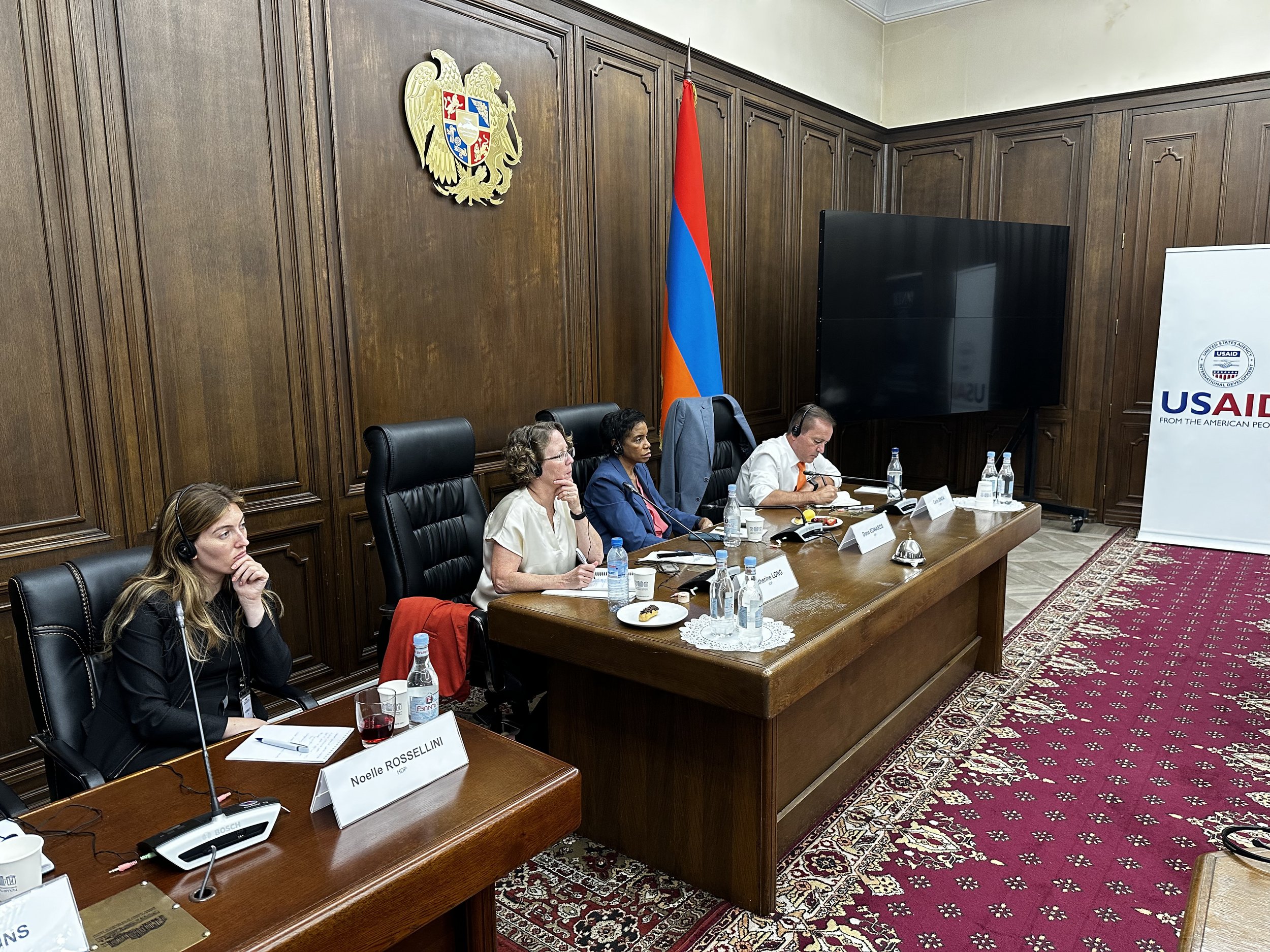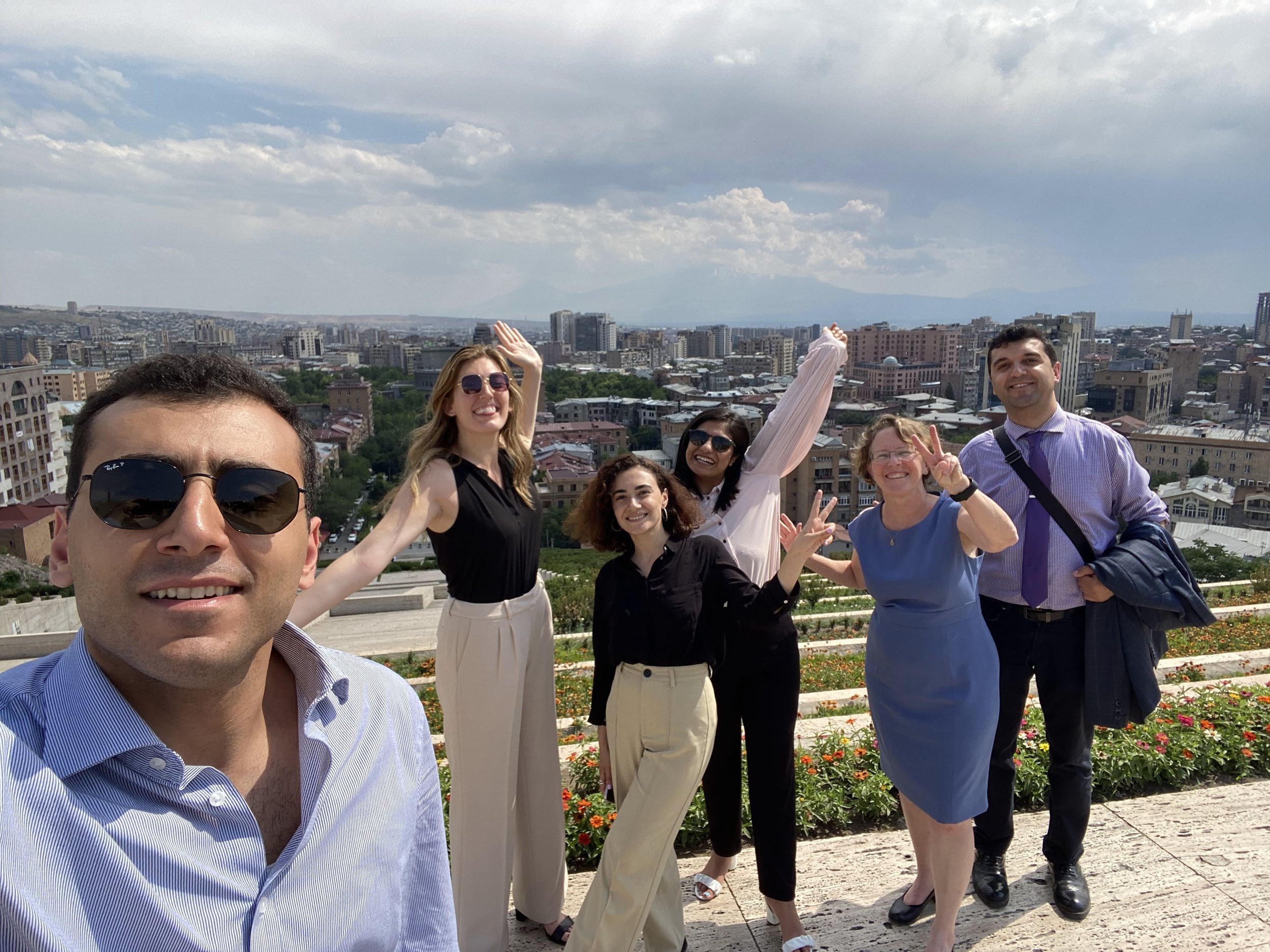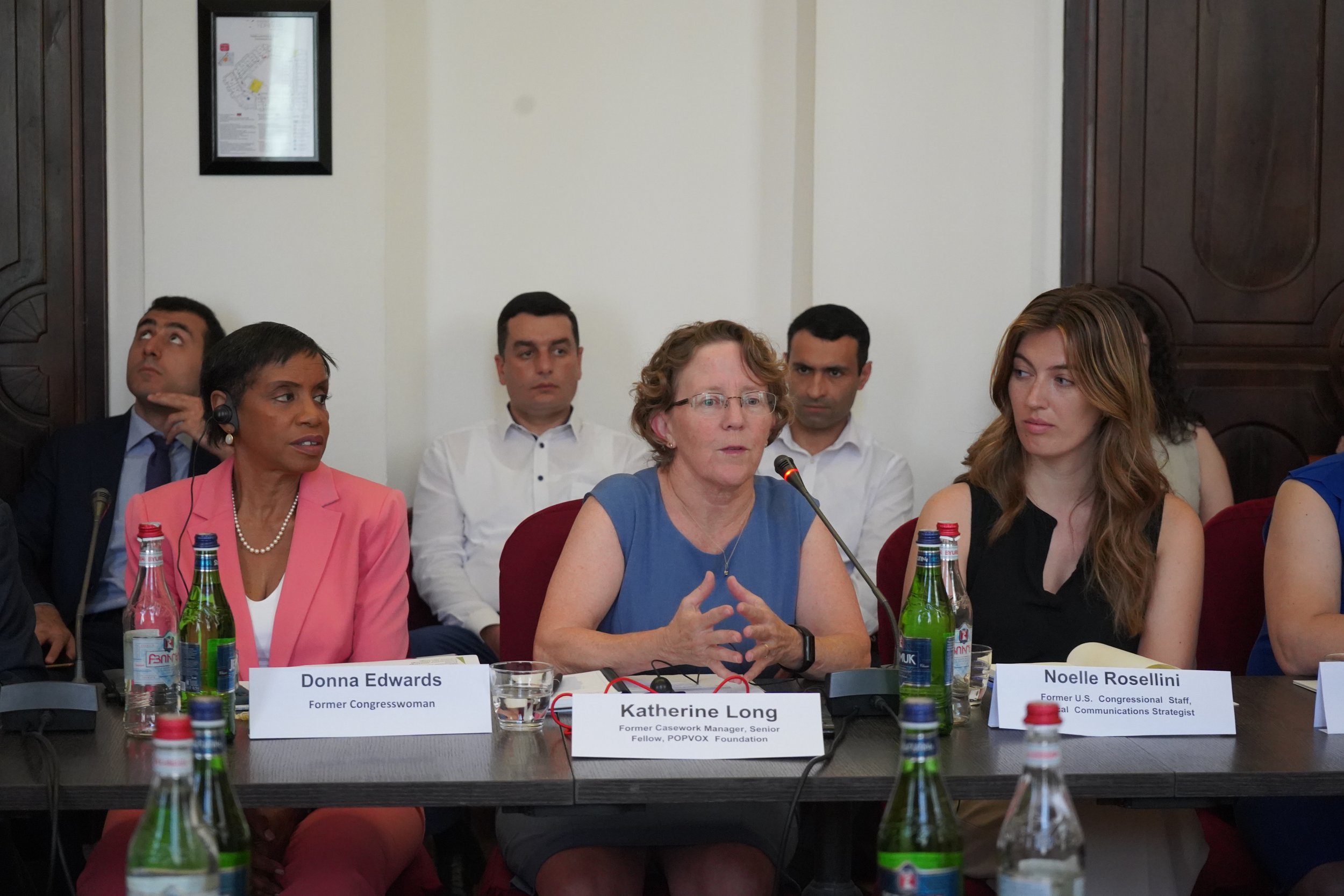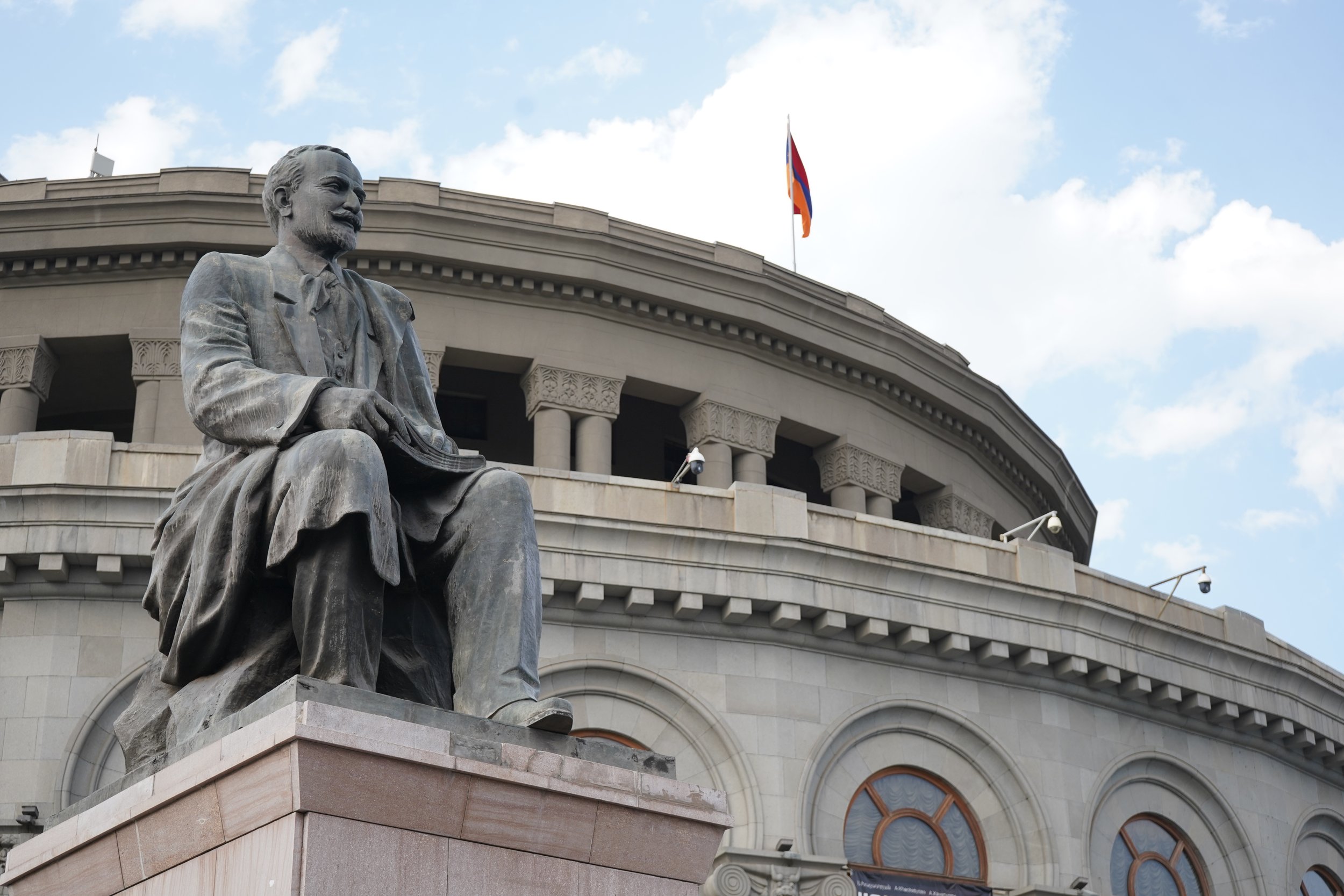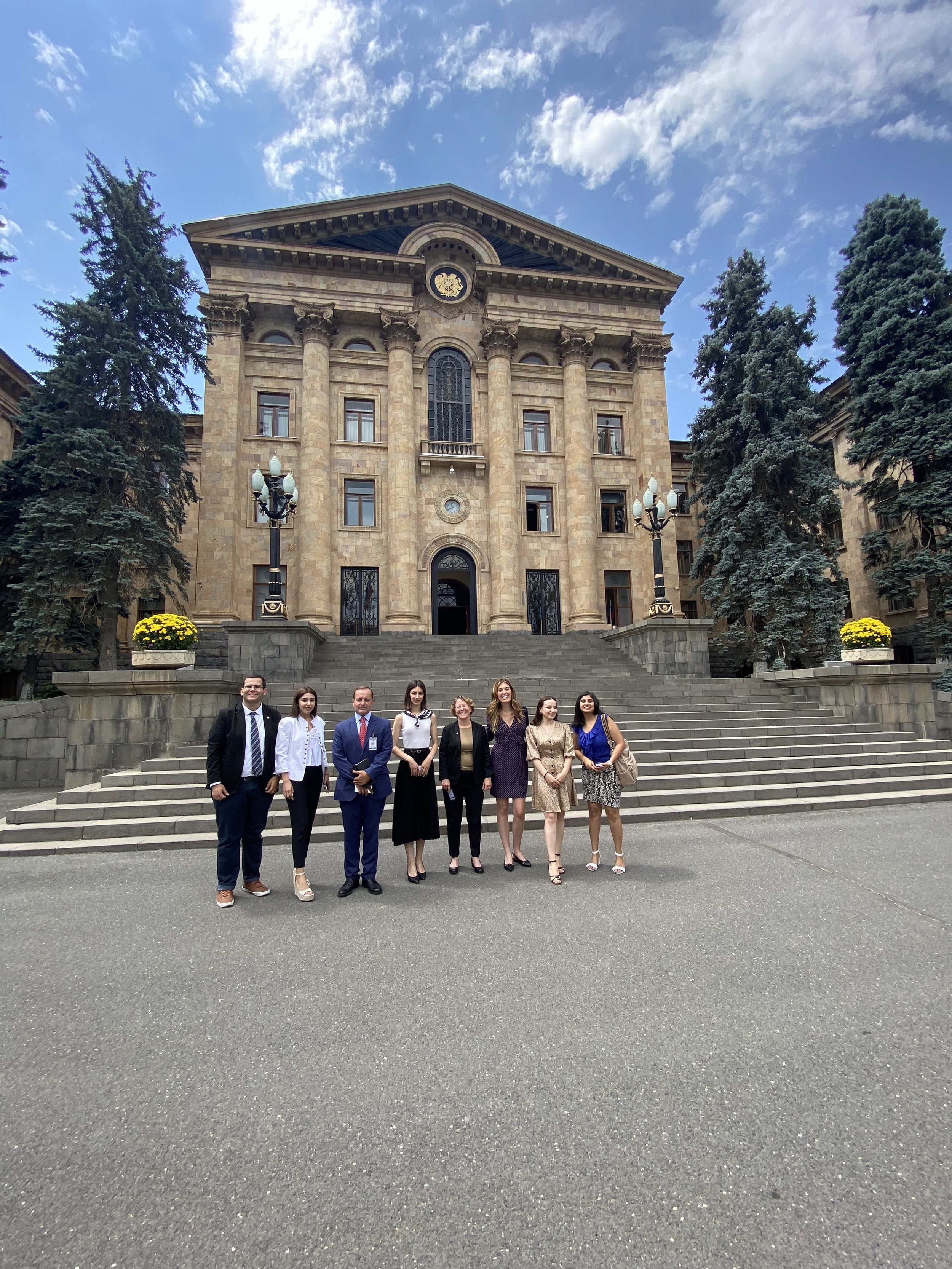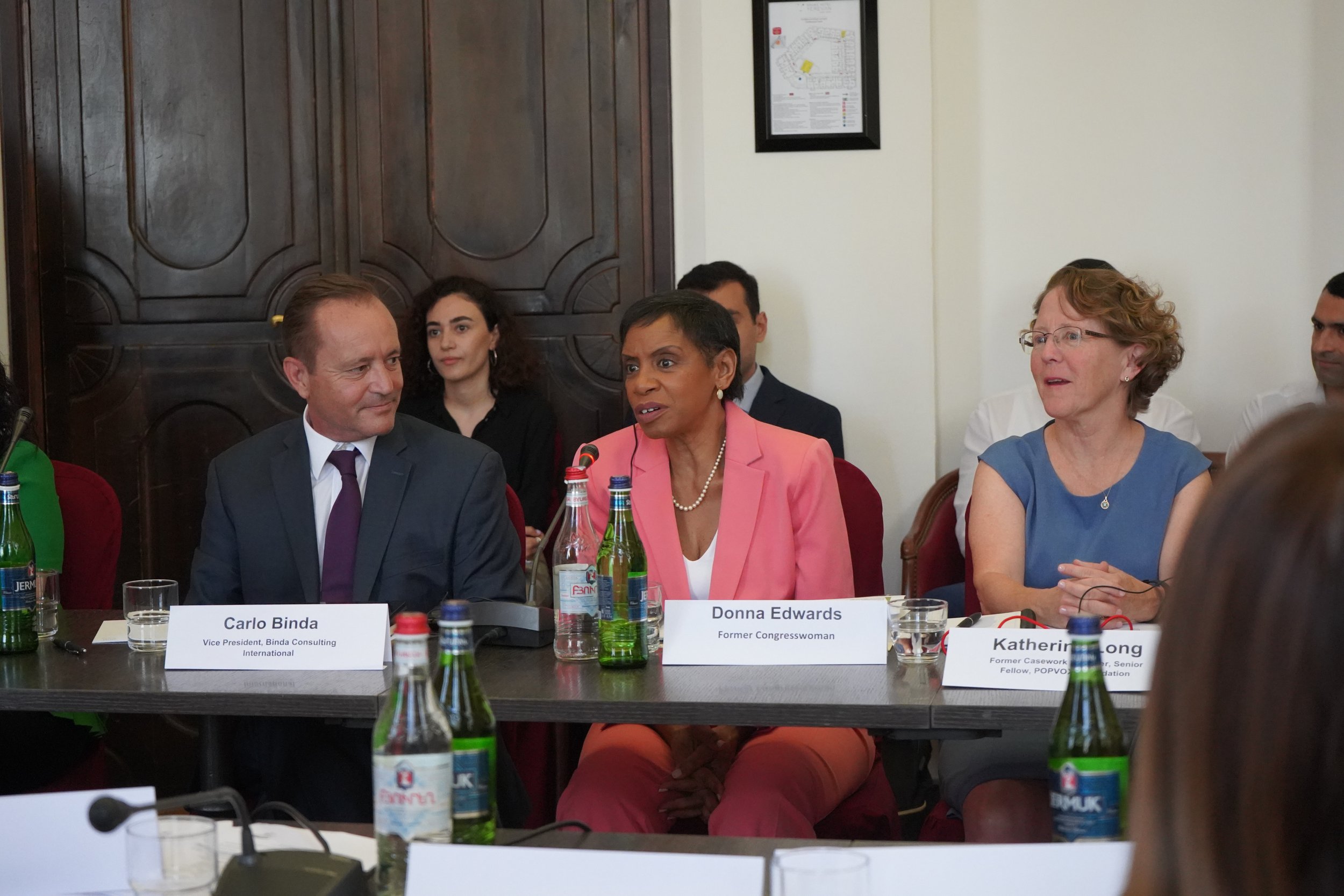Casework in the International Context: Notes from Sunny Yerevan
With over 15 years of experience as a Senate caseworker in a small state, I am passionate about Congressional casework as an important way for constituents to exercise their right to petition the government and about the value of casework insights to Congressional oversight. I have long felt that the project of democracy gains legitimacy when constituents can air their concerns with their elected officials and when these concerns are acknowledged and acted upon.
But these are wonky ideas that caseworkers don’t talk much about when we are busy answering the phones and talking with constituents about passports and tax refunds and FEMA claims.
So it was a great privilege to be invited to participate in June as a delegate of the National Democratic Institute (NDI) Technical Assistance Consultancy with the National Assembly of Armenia as part of the the House Democracy Partnership. And I was well-prepared for the engagement by the thinking and research I had the luxury of doing as a Senior Fellow for Casework Programs with POPVOX Foundation.
Along with a former Member of Congress, two former Hill staffers, and an expert in parliamentary systems, our delegation spent 3 days meeting with Members of the Armenian Parliament (MPs) and their staff and interns focused on constituent engagement.
The Armenian parliament is a unicameral system in which members are elected in a closed-list proportional system and do not represent specific electoral districts. As such, Armenian MPs do not have the same fixed geographical constituency that Representatives and Senators do in the United States. This provoked a lot of thought and discussion among the delegation members, and it gave me the chance to reflect on the oversight (as opposed to the electoral or service-oriented) dimension of casework, and the importance of creating effective systems to use casework as an opportunity to communicate with constituents. Below are a few key takeaways:
Casework has value beyond direct service
In a closed-list proportional system, there is little or no electoral incentive for individual members to “deliver” constituent service to promote their own re-election and no defined geographic constituency where Members of Parliament (MPs) are required to focus their attention. Since we understand responsiveness to constituents as fundamental to a healthy democracy, in the proportional system, the emphasis must be on how constituent engagement offers insight into community needs and data on government performance. That information can be translated into government initiatives through legislation and funding. In the US, this is something that we grapple with every day.
Communication strengthens democracy
The Armenian National Assembly (NA) has enacted significant legislation that impacts individual constituents such as new employment programs and paternity leave. However, since the war in 2020, much attention has understandably been focused on security concerns and international relations. As in the US, finding ways to share information about government programs can benefit constituents directly and demonstrate that a democratic government can be responsive to individual and community needs. When the legislature communicates that it has made an impact on issues of concern to constituents, it reinforces the value of a democratically elected body. Does success only reflect on the majority party? How do legislators establish themselves as accessible and available for constituents no matter their party or their majority/minority status?
Everyone finds non-jurisdictional requests frustrating
Members and staff of the Armenian National Assembly expressed frustration with the number of constituent inquiries they receive that are outside their “framework of competency” of MPs, that is, outside of their jurisdiction as law-makers or outside of the national government jurisdiction. Some of these inquiries might be legal in nature, personal disputes, or problems with municipal or regional government or benefits. In some cases, MPs and staff felt that constituents did not understand the role of an MP and they observed that there was a need for more civics education regarding the structure and operation of government. In other cases, they reported that constituents felt they would get faster or greater attention to their problems with other levels of government if the MP inquired about the issue. Congressional caseworkers in the US context face the same issue, although there is greater incentive to have visibility even on non-jurisdictional issues because of the perceived electoral benefits. Clearly communicating the policies and procedures for legislators to engage in casework can mitigate the (mis)perception that agencies are responsive to political influence outside of the laws, rules, and policies that govern government benefits and services.
Better casework systems are possible
A surprising discovery was that Armenia has an e-government portal and document sharing platform that gives MPs some visibility on constituent cases that are flagged to government agencies for resolution. The platform is used periodically to identify and report on trends, information that could be valuable as a form of government oversight. The US House is considering implementing a caseworker “data aggregator” that could serve this function and enhance the oversight value of casework across party lines.
Few people - elected officials included - seek out criticism. As in the US context, MPs prefer positive to negative interactions with constituents. However, accepting individual casework or creating opportunities to hear from constituents about their problems with government or the challenges affecting them as individuals or communities offers lawmakers important insights to inform legislation and oversight. In this engagement, we spent a lot of time reinforcing the value of listening to constituents, using what they tell you as data for oversight, and providing resources and referrals to other levels of government.
The Armenian National Assembly has a small staff and a cadre of interns supported by NDI who are eager to engage with constituents and learn from the experiences of other democracies. As a longtime Congressional caseworker, I was struck by the creativity required by their electoral system and the opportunities it presents to focus on casework as data for oversight. And I was reminded of the fundamental importance of the constituent voice in a democracy.

